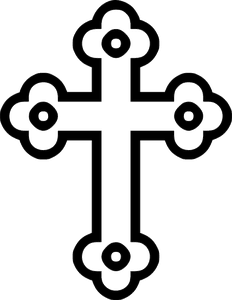We see that it is not the task of Christianity
to provide easy answers to every question,
but to make us progressively aware of a mystery.
God is not so much the object of our knowledge,
but the cause of our wonder.
~ Met. Kallistos Ware
Time & Location
WHERE:
Catechism class meets in the Conference Room in the Administrative/Church School building.
WHEN:
At specific times during the year, during the week after Daily Vespers service. If you live in our area and are interested in attending, please contact the Church Office at admin@stanthonythegreat.org.
Class Materials
The following are links to supplemental materials used in the Catechism Class. This materials list is subject to change each year.
The Orthodox Church by Met. Kallistos Ware
Bread & Water, Wine & Oil: An Orthodox Christian Experience of God by Fr. Melletios Webber
Study Guide for Bread & Water, Wine & Oil (download) by St. Anthony Orthodox Church
Recommended but not required:
The Orthodox Study Bible by St. Athanasius Academy of Orthodox Theology
Additional Modern Materials
The Long Catechism of Metropolitan Philaret (Drozdov) of Moscow is a link to an external website containing the English translation of this formal Catechism. It is written in the modern style of questions and answers. The index breaks things down into subject area if you have specific questions you are looking to understand.
Supplemental Extra-Biblical Ancient Church Writings
None of the following are in any way required reading; it is supplemental for those who may be interested. Also, the list is certainly not exhaustive, but rather contains a representation of materials available to and used by the Early Church.
The following resources were not canonized into the NT Scripture, although some of the earliest were discussed as candidates, and all of these were well known to early Christians. Many of these were commonly read in the Churches along with the Gospels and Epistles.
While we will not be looking at any of these in detail in the Catechism class, they are included here as outstanding references to see into the mind and heart of the Early Church, as they help disclose some of the culture and common beliefs which the Ancient Church held, and explain some of our modern Orthodox practices. (For example: Did the Ancient Church fast every Wednesday and Friday? See Didache 8:1.)
Word of Warning:
Understand that Patristics is an advanced area of theological study. Do not read one specific writing or one Church Father and assume that all other Church Fathers agree with him on every point, or that any one work represents the fullness of the Orthodox Christian faith. Orthodoxy is councilor and collegiate; our dogma and doctrine comes not from any one given Church Father but from the consensus of all of the Church Fathers.


